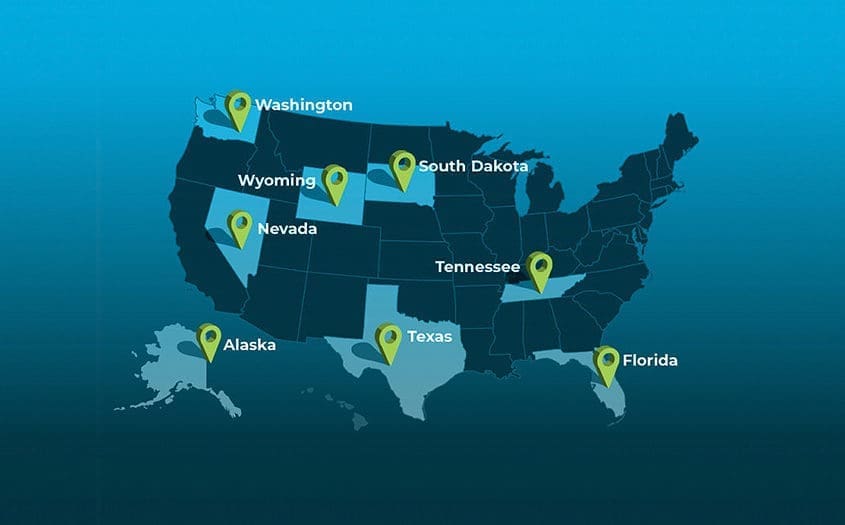States with No Income Tax
Imagine being able to erase what you thought was an unavoidable cost of living or doing business. That’s exactly what you can do if you reside or locate your business in one of the seven — soon to be eight — U.S. states that don’t have an income tax:
• Alaska
• Florida
• Nevada
• South Dakota
• Texas
• Washington
• Wyoming
• Tennessee will be completely tax-free by 2021
Two more states don’t tax income from wages or earnings. However, they do tax income from interest and dividends on investments:
• New Hampshire: When interest and dividend income for the tax year exceeds $2,400 ($4,800 for joint filers) plus additional exemptions for age, blindness, and disability.
• Tennessee: When interest and dividend income for the tax year exceeds $1,250 ($2,500 for joint filers). This tax will be phased out over the next three years.
What if you live in a tax-free state but earn income in a taxable state?
You will have to file a non-resident tax return in the taxable state.
What if you live in a taxable state but earn income in a tax-free state?
ALL your income — including what you earned in the other state — must be reported on your state tax return.
Of course, you must still file a federal income tax return, no matter what state you live in.
Can you register your business in a state other than your home state?
For both LLCs and corporations, the answer is yes, you can. It’s an excellent way of saving on business taxes and also taking advantage of other money-saving breaks for businesses.
However, it can have drawbacks, such as extra fees, increased paperwork, more logistics hassles, and possible denial of protection against legal and financial liabilities. What you save on income tax may be less than what you lose on these other expenses.
Before you make a decision on what’s best for your business, be sure to consult your xendoo CPA team about the tax issues, as well as a lawyer about the relevant state government regulations.


